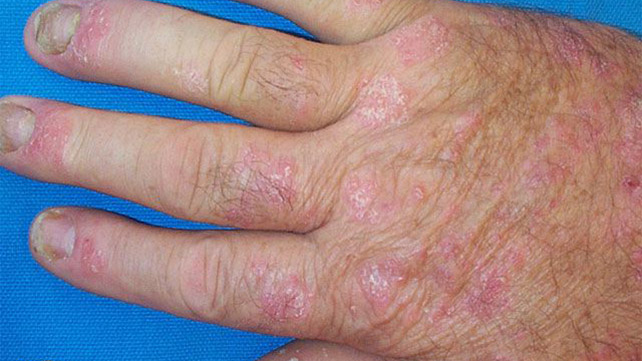Some people might hear “psoriasis” and think of the skin disease that causes itchy, scaly rashes and crumbling nails. It's true, psoriasis is an autoimmune disease that primarily affects the skin. But about 30 percent of people with psoriasis also develop a form of inflammatory arthritis called psoriatic arthritis (PsA). Like psoriasis, PsA is an autoimmune disease, meaning it occurs when the body’s immune system mistakenly attacks healthy tissue, in this case the joints and skin. The faulty immune response causes inflammation that triggers joint pain, stiffness and swelling. The inflammation can affect the entire body and may lead to permanent joint and tissue damage if it is not treated early and aggressively.Most people with psoriatic arthritis have skin symptoms before joint symptoms. However, sometimes the joint pain and stiffness strikes first. In some cases, people get psoriatic arthritis without any skin changes.The disease may lay dormant in the body until triggered by some outside influence, such as a common throat infection. Another theory suggesting that bacteria on the skin triggers the immune response that leads to joint inflammation has yet to be proven.



 Contact Us
Contact Us






 Hospitals
Hospitals
 Doctors
Doctors
 Diagnostic
Diagnostic
 Pharmacy
Pharmacy
 Health Tips
Health Tips
 Blog
Blog

























Comments